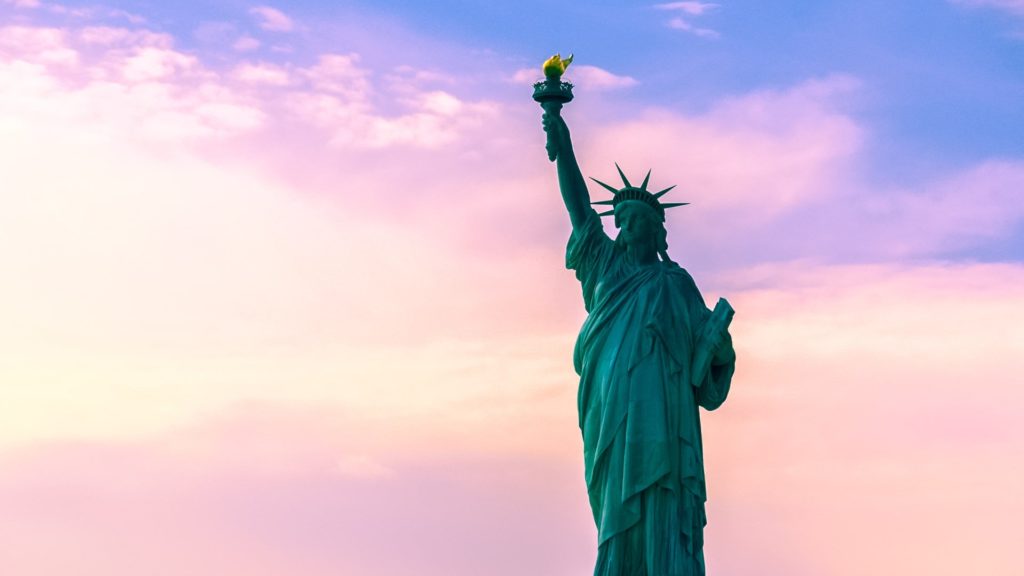John Adams, who has become “virtually an asterisk in history books today,” in one writer’s words, is inadequately celebrated. He played a leading role in our revolution and the beginnings of constitutional government. He wrote a Stamp Act protest that became a model for other protests. He outlined principles of liberty for Americans on the cusp of independence.
He helped write the resolutions of May 10, 1776, declaring America independent, and defended the Declaration of Independence before Congress. He composed most of the Massachusetts Constitution (the oldest still in use in the world), acclaimed for its bill of rights. His A Defense of the Constitutions of Government of the United States was often cited in the Constitutional Convention.
James Adam’s Advocacy
Given Adams’s importance in establishing our country on the basis of liberty, we should remember his advocacy of the rights, or property, that is the content of our liberty and whose defense is the central reason our government was instituted.
- “Liberties are not the grants of princes and parliaments.”
- “[People have] rights…antecedent to all earthly governments—rights that cannot be repealed or restrained by human laws.”
- “Each individual of the society has a right to be protected…in the enjoyment of his life, liberty, and property…no part of the property of any individual can, with justice, be taken from him, or applied to public uses, without his own consent.”
- “In a free state, every man…ought to be his own governor.”
- “To be commanded we do not consent.”
- “Liberty is [government’s] end.”
- “In order to have this liberty, it is requisite the government be so constituted… that one citizen need not be afraid of another citizen.”
- “Property must be secured, or liberty cannot exist.”
- “The end of…government is…the power of enjoying, in safety and tranquility, [individuals’] natural rights and the blessings of life.”
- “[Government]…should be…for the preservation of internal peace, virtue, and good order, as well as the defense of their lives, liberties, and properties.”
- “The moment the idea is admitted into society that property is not as sacred as the laws of God, and that there is not a force of law and public justice to protect it, anarchy and tyranny commence. If ‘Thou shalt not covet’ and ‘Thou shalt not steal’ were not commandments of heaven, they must be made inviolable precepts in every society before it can be civilized or made free.”
- “Nip the shoots of arbitrary power in the bud is the only maxim which can ever preserve the liberties of any people.”
- “Trust no man living with power to endanger the public liberty.”
- “Liberty must at all hazards be supported.”
- “A free constitution of civil government cannot be purchased at too dear a rate, as there is nothing on this side of Jerusalem of equal importance to mankind.”
- “Be not…wheedled out of your liberty by…hypocrisy, chicanery, and cowardice.”
John Adams, because he recognized “an enemy to liberty [as] an enemy to human nature” and that “nothing is so terrible as the loss of their liberties,” wrote that “It has ever been my hobby-horse to see rising in America an empire of liberty.”
A Monumental Debate
Reflecting the central importance of liberty, Adams called the debate over the Declaration of Independence “the greatest question…which ever was debated in America.” Thomas Jefferson described his defense as having “a power of thought and expression that moved us from our seats.” Delegate Richard Stockton called him “the man to whom the country is most indebted…who…by the force of his reasoning demonstrated not only the justice, but the expediency of the measure.”
Adams also saw the importance of America’s revolution for the world:
Objects of the most stupendous magnitude and measure in which the lives and liberties of millions yet unborn are intimately interested, are now before us. We are in the very midst of a revolution the most complete, unexpected and remarkable of any in the history of nations.
And he made it clear why founding America on liberty was monumental: “Her cause is that of all nations and all men, and it needs nothing but to be explained and approved.” At a time when we often forget that liberty is both America’s rationale and its greatness, Americans would profit from Adams’s wisdom.
Gary M. Galles
Gary M. Galles is a professor of economics at Pepperdine University. His recent books include Faulty Premises, Faulty Policies (2014) and Apostle of Peace (2013). He is a member of the FEE Faculty Network.
This article was originally published on FEE.org. Read the original article.


